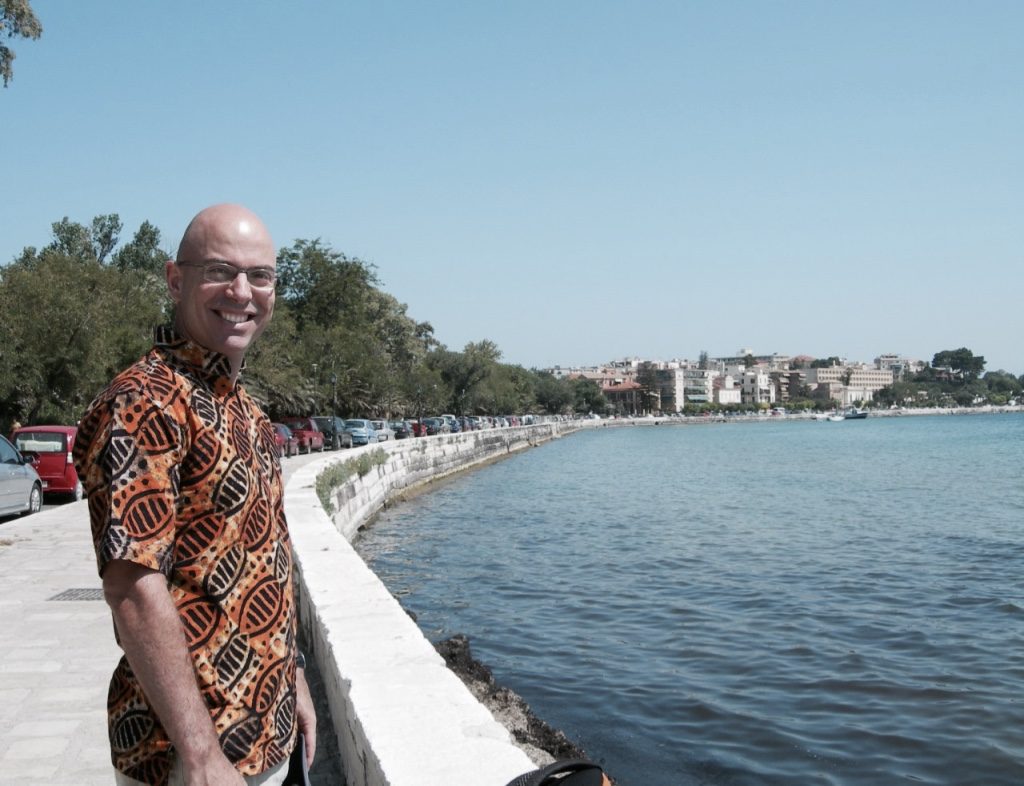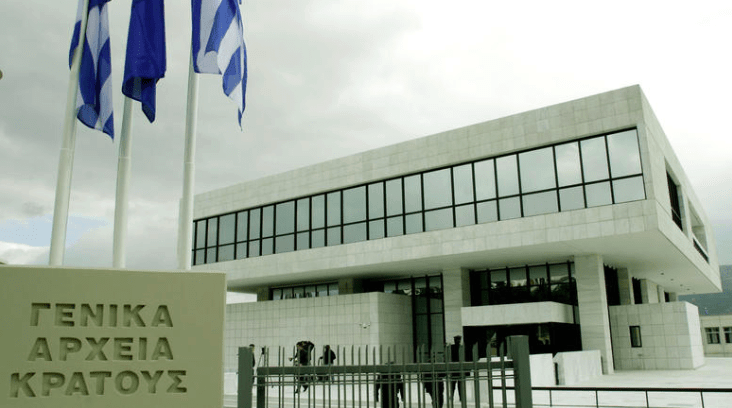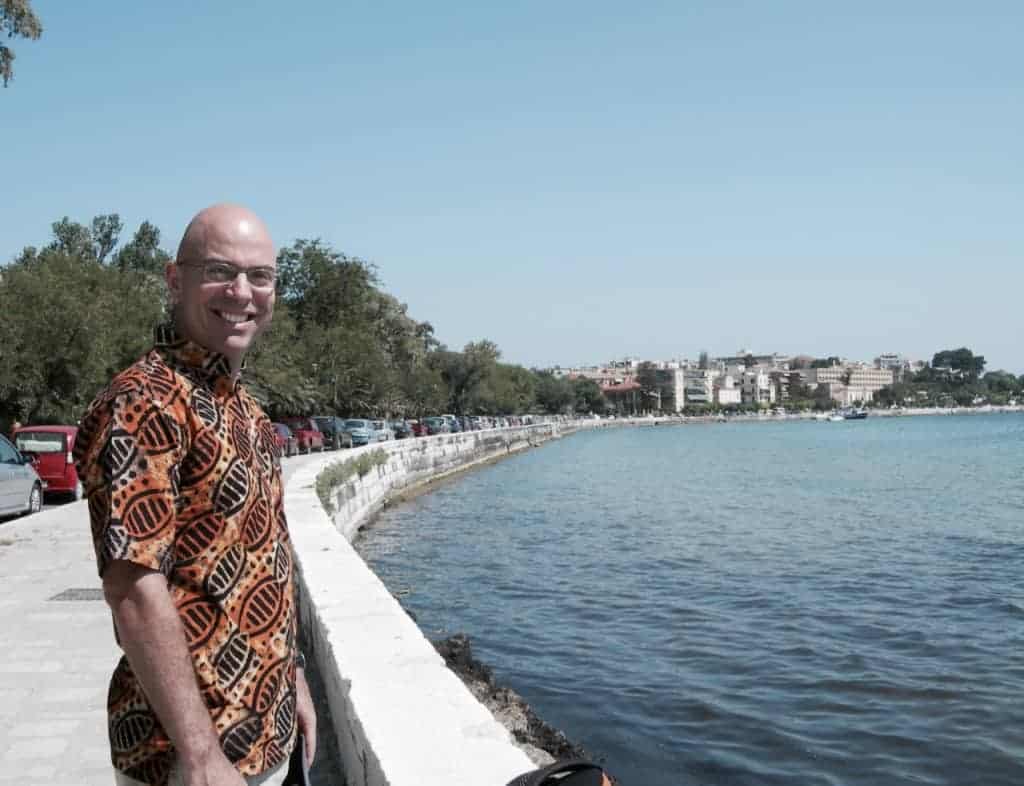
South-African Greek, Alexander Armenis’ fascination with Genealogy has led him to track ‘forgotten’ Greek family worldwide and in the process has managed to come in contact with family members for the first time.
Clinical Psychologist by day, Alexander has done what many dream of doing- joined the dots and created a family tree & gives us his tips on how to go about it.
Tell us about yourself?
My name is Alexander Armenis (Alex) and I am a 38 years-old businessman from Stellenbosch, South Africa. I am a qualified Clinical Psychologist and some of my many interests include genetic genealogy and family history.
Where did you grow up?
I grew up in the town of Hermanus in South Africa. After completing Primary School, my family moved to the university town of Stellenbosch where still I reside today with my beautiful wife. During my youth there were very few Greek families in the vicinity where I grew up. The Greek community in the city of Cape Town congregates at the Greek Orthodox Cathedral of St. George every Sunday and most social events are held at the Greek Club in the affluent suburb of Mouille Point.
Where were you born?
I was born in Johannesburg, South Africa.
Where do your Greek ancestors come from?
My father, Spyridon Armenis (Spiros), immigrated to South Africa in 1967 from Athens, Greece. He was born in the Village of Giannades on the Ionian Island of Corfu (Kerkyra).
Why did you decide to do a family tree?
I began collecting old family photographs and documenting the family tree following my travels to Greece. My interest grew as more of my family members asked me to tell them about the history of our family. There was a need for it.
How long has it taken you?
The process of searching the Church registries to find and confirm birth, baptism, death and marriage records for my family has taken me approximately two years.
Have you found new branches on your family tree?
Certainly I have. The experience has provided me with the opportunity to contact family members whom I otherwise never would have known about. WWII and the military junta resulted in many Greeks leaving their villages and families to settle in Athens, some immigrated half-way across the world. These family members appeared to have been forgotten by the community and it was only after conducting my research that the old names began to stir up old memories within the community.
How did your new-found family react to you?
My attempts to contact new family members were met with excitement and appreciation. I found that Greeks living abroad were more communicative on social media platforms, making communication cheaper and convenient. Whereas new-found family members residing in Greece were more likely to communicate by post and telephonically.
Most family members living in the diaspora often yearn for a connection to their homeland and think of their country of birth with longing. I found this to be my experience.

How does one undertake creating a family tree?
You begin by confirming your parents’ birthdates and work backwards from there to their parents, until you cannot go any further. Every step involves finding the relevant baptism entry, confirming it with the marriage entry, and closing off with the date of death as found in the death records. The National Archives, otherwise known as (Γενικο Αρχειο του Κρατους), should have the Church registries for the entire district or (περιφερεια). The local priest should be able to assist you.
Why and what can people learn creating their family tree?
The lessons are numerous, for me the most important lesson; was realising that people are more closely related than I may have thought of been taught to believe. Learning about family can be a difficult experience for some of us as we find out about some of the hardships and traumatic life events that our own families have had to endure. Personally, I have come to appreciate my family’s history more and value the life lessons that the process and journey has afforded me.
Tips to creating your own family Tree?
Try to work as accurately as possible using Church registries. You can always add snippets of anecdotal or interesting information afterwards. Confirm dates and names using documented records. The Greek archives are not always open to the public. You will need to fill out a few forms and order the necessary records to be viewed the following day. The system works well and the staff are very helpful.
Try to find a member of the local community who is familiar with the National Archives in the district you wish to do family research. Take them along with you the first few times until you become a familiar face to the administrative staff at the archives, the reading room and the security.
Remember to expect the unexpected. Most family trees are difficult to establish, especially when family members moved around a lot or were residents in a large town or city. Small communities are easier to research as the Church registries belonging to one particular church are often all you need.
In addition to the documents and historical research try interviewing the local community members about their relationships and family ties to one another, keep plentiful notes on family nicknames and other finer details to distinguish between the many branches of the same family name.
Lastly but most importantly, keep an open mind and remain positive.


